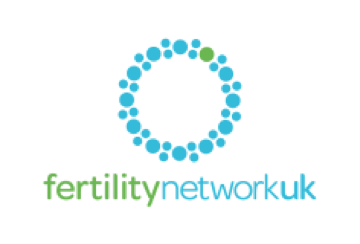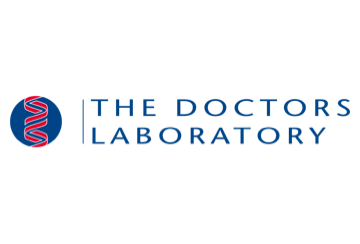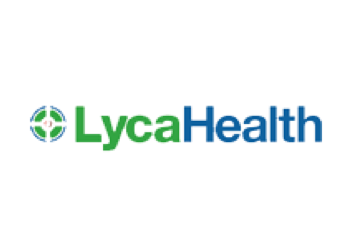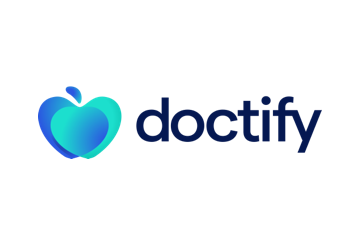In Vitro Fertilisation – IVF Treatment London
In Vitro Fertilisation (IVF) is a fertility treatment that successfully helps many individuals and couples have a baby. It is a common treatment used by people with a wide range of fertility issues. Currently, 1 in 50 babies born in the UK is an IVF baby.
Read more to find out if IVF at our leading private fertility clinic is right for you.

What is In Vitro Fertilisation and how does it work?
IVF is a popular fertility treatment that can help people who struggle to conceive or cannot conceive naturally. You can use your own egg and sperm or a donor’s egg and/or sperm. IVF is available for anyone looking to start a family, including heterosexual and same-sex couples and single women.
During IVF, a woman’s eggs are removed from her ovaries and fertilised with sperm in a laboratory. The fertilised eggs are called embryos. The embryologist will then choose the strongest embryo to be returned to the woman’s womb to grow and develop.
Your consultant will recommend a personalised treatment plan to maximise your chances of success with IVF.
Why might IVF be recommended?
Infertility affects around one in seven couples. There are many reasons why couples might struggle to conceive. Some of the common reasons that IVF might be recommended include:
- Fallopian tube damage or blockage
- Ovulation disorders such as polycystic ovary syndrome (PCOS)
- Diminished ovarian function with an increase in female age
- Endometriosis
- Uterine fibroids
- Suboptimal sperm production or function
- Unexplained subfertility
IVF is suitable for most, so if you’ve been trying to conceive for more than six months without success, it’s a good idea to make a consultation with a fertility consultant.
IVF Treatment in London at Our Leading IVF Clinic
We offer free 15-minute advisory calls to discuss any questions you might have about your fertility and whether or not IVF might be right for you.
IVF Treatment
IVF Treatment (1:07)
Play
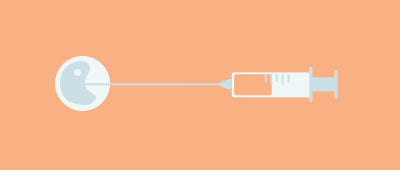
IVF Treatment | Process (2:55)
Play

IVF Treatment | Advantages and Risks (4:34)
Play

IVF Treatment | Egg Collection Demo (1:08)
Play

IVF Treatment | Embryo Transfer Demo (1:54)
Play

IVF Success
Blastocyst Transfer | IVF Success (2:30)
Play

Embryoscope | IVF Success (2:30)
Play

Natural Cycle IVF Treatment
Natural Cycle IVF Treatment (1:52)
Play

Natural Cycle IVF Treatment | Process (3:04)
Play

Natural Cycle IVF Treatment | Advantages and Risks (1:31)
Play

Natural Cycle IVF Treatment | Egg Collection Demo (1:13)
Play

Natural Cycle IVF Treatment | Embryo Transfer Demo (2:00)
Play

The common reasons are:
• Fallopian tube damage or blockage
• Ovulation disorders are commonly due to PCOS or diminished ovarian function with an increase in female age
• Endometriosis
• Uterine fibroids
• Suboptimal sperm production of function
• Unexplained subfertility
IVF treatment involves the following steps:
Step 1 - Workup
a) Initial consultation
b) Fertility Fitness Tests
c) Follow up consultation
Step 2 - Preparation
a) Complete consent forms
b) Attend a nurse consultation
c) Purchase of medication
Step 3 - Treatment
a) Ovarian stimulation
b) Egg collection
c) Embryo Transfer
d) Freezing and storage
a) Initial Consultation
This involves an hour-long discussion with the specialist. It helps to determine your medical history and suitability for the treatment. Please let your doctor know if you have any medical problems; if you are on any medication/supplements/herbal therapy; allergies to drugs, plasters, latex; or if you have had any surgery in the past. If you are overweight or have any medical problems, you may be referred to a specialist.
b) Fertility Fitness Tests
1. To check your ovarian function, also called the Ovarian Reserve Test
The aim of the ovarian reserve test is to assess the ovarian response and hence the possible number of eggs likely to be produced after stimulation. It also helps determine the drug regime and the dose of drugs that would be most suitable to get a reasonable number of eggs. It involves a transvaginal scan to determine the antral follicle count and a blood test to assess the AMH level. The scan is best done between days 1 - 5 of your period. An antral follicle count of 6-7 follicles in each ovary and an AMH level of over 20 pmol/l, suggest good ovarian reserve.
2. Assessment of the uterine cavity, to confirm there are no polyps or fibroids and that the lining of the womb is healthy. This is determined by performing the saline scan and endometrial biopsy.
3. To check your general health in preparation for the egg retrieval procedure
This involves doing the following laboratory tests:
HIV + Hep B s Antigen + Hep B c Antibody + Hep C Antibody + Rubella + Chlamydia + Thyroid Function Test + Full Blood Count + Vaginal Swab + Clotting profile + Vitamin D
As per UK regulations, viral testing is mandatory prior to treatment. While clinics will only ever place screened samples in designated tanks, they cannot be held responsible for any cross-contamination that may occur during the storage period.
4. Semen tests are conducted to assess the sperm count, motility and shape of the sperm. The semen culture test helps determine if there are bacteria in the sample that can prevent the sperm from penetrating the egg. The sperm DNA fragmentation test analysis the DNA quality of the sperm
c) Follow up consultation
This helps discuss the outcome of the above tests, answer any further questions, and to firm up the treatment plan.
a) Complete Consent Forms
You will receive a link via email to our online consent form portal.
Prior to undergoing treatment, you will need to complete all appropriate consent forms. For further information please visit the HFEA’s website. Please ask for a copy of your consent forms.
You can withdraw or alter your form/s at any time – before, during or after your treatment. It is your responsibility to inform your clinic about any changes in your circumstances eg address.
b) Attend a nurse consultation
It is an hour-long appointment and will cover the following:
1. ID check
As part of your treatment, it is mandatory to confirm your identity. We will ask you to provide either:
• A copy of your passport or driving license
• Your NHS or CHI number
2. Protocol and medication discussion
A discussion about your personalised treatment plan and how to use your medication will be conducted. Majority of the patients in the UK self-inject the drugs.
3. Witnessing of consent forms
All consent forms are to be signed and witnessed at this appointment so that you can initiate your treatment
c) Purchase of medication
You can buy the medication from the following sources:
- Your local pharmacy e.g. ASDA
- A home delivery service
Check the names and quantities of the medications along with the expiry date when you purchase the drugs. As per UK regulations, medication cannot be returned or exchanged once dispensed.
Make sure you have the appropriate needles and syringes and that you have been provided with a sharps bin. Please follow the storage instructions carefully as some drugs need to be refrigerated.
a) Ovarian stimulation
Hormonal injections are administered to stimulate the ovaries to produce eggs. The protocol and the dosage of medication depend on your egg reserve.
Let us know when your full flow of bleeding starts. This is considered as day 1 of the cycle. Follow the instructions on your treatment plan.
You will have an ultrasound scan at the start of your treatment. Whilst you are on the medication you will continue to have ultrasound scans and blood tests to assess your response to medication. Your medication dose may need to be adjusted based on your response.
The monitoring will continue until your follicles are large enough and the hormonal level suggests that you are ready to take the trigger injection. This injection helps to mature the eggs in the follicles.
You will be told the exact time to take the trigger injection. This must be taken at the precise time advised as the egg collection procedure is timed accordingly. If you are unsure or have not been told when to take it please talk to your doctor prior to taking it.
This phase of treatment lasts around 2 weeks.
b) Egg collection
1. Instructions prior to an egg collection
• Take your trigger injection on the day and exact time you have been asked to take it. Please check with your doctor the dose of your trigger shot or check your protocol. If you are unable to do the trigger as recommended eg you drop the medication, please inform your doctor immediately.
• You will take your last GnRH agonist (e.g. Buserelin) or GnRH antagonist (e.g. Cetrotide) prior to your trigger shot. Your doctor will discuss this with you or check your protocol.
• You will also stop taking the stimulating drugs on the day of the trigger injection.
• The day after your trigger injection, you need to be nil by mouth (ie no food or drink) from midnight. This is the night before your egg collection.
• On the day of your egg collection, do not wear any make-up, nail varnish, jewelery or contact lenses. Do not bring any expensive items will you to the clinic.
• Carry your support stockings with you and wear them when you arrive at the clinic.
• Insert your pain medication in your back passage 30 min prior to the procedure.
• Arrive at the clinic at least 30 minutes prior to the procedure time.
• You may bring a friend or a relative with you before the procedure although this is not mandatory. However, you must have someone come and collect you after the procedure and stay with you for 24 hrs post-procedure.
• Please ensure that you have protected intercourse during stimulation and 48 hours post egg collection. Inform your doctor immediately if you have had unprotected intercourse during this period.
2. Instructions post egg collection
You should have a friend or a relative with you for the first 24hrs following the procedure. You should not sign any important documents, drink alcohol or drive any machinery.
You can take pain relief such as paracetamol 1gm every 4 – 6hrs following the procedure. The vaginal bleeding should be no more than a heavy period and should settle in a couple of days.
There is a risk of infection post egg collection but you are likely to receive antibiotics during the procedure. The symptoms of infection are raised temperature (above 38⁰ C), offensive vaginal discharge and abdominal pain.
The risk of injury to internal organs such as the bladder, blood vessels and bowel is very low. Usually, no further action is needed as it is only a needle stick injury. However, rarely one may need a blood transfusion, laparoscopy or a laparotomy. Patients at risk of these injuries are those who have severe endometriosis and pelvic adhesions. If you feel faint or have severe abdominal pain or vaginal bleeding you should call 999 and go to the A & E immediately. Also, inform your doctor.
Ovarian Hyperstimulation Syndrome is a complication that most commonly affects young women with very active ovaries (called polycystic ovaries). In this condition, one starts feeling bloated and may have abdominal discomfort during ovarian stimulation and following egg collection. This can lead to nausea, vomiting and diarrhoea. Rarely, these can progress to dehydration; painful, red, swollen legs due to blood clots in the leg; concentrated urine due to renal compromise; chest pain and shortness of breath due to embolization of the blood clot. These would require hospitalisation as close monitoring is needed. These severe symptoms are unlikely to be encountered in those that freeze all their embryos as these are generally seen when one over responds to ovarian stimulation and gets pregnant following IVF treatment. Please make sure that you are well hydrated during treatment and following egg collection. You may use paracetamol for pain relief. Talk to your doctor if you have any concerns.
Please have protected intercourse for 48 hrs post egg collection. There is a risk that some eggs could remain in your body after the egg collection and you could be at risk of pregnancy.
You should only do gentle exercise such as walking for 6-8 weeks post egg collection. Do not lift weights. The ovaries enlarge as a result of ovarian stimulation and can twist on themselves. This condition is called ovarian torsion and would require surgical intervention to sort.
c) Embryo Transfer and luteal phase support
On the day of egg collection, the eggs and sperm will be incubated in the laboratory in those having conventional IVF treatment or following injection of the sperm into the egg (ICSI). You will get regular updates on the progress of the embryos. Typically, five to six days after the egg collection procedure the best quality embryo will be transferred into the uterine cavity under ultrasound guidance. The luteal phase is supported with the use of progesterone supplements.
d) Freezing and storage
On the day of the embryo transfer, the embryologist will assess the remaining embryos. Embryos that are of high quality will be put in storage for future use. You will be told how many embryos have been put in storage
Below is a list of commonly used medications for IVF treatment. You may be on some of them. Please refer to your personalised treatment plan to see which medication is prescribed for you.
• GnRH antagonist – eg Inj Cetrotide subcutaneous injections
This drug is used to help prevent premature ovulation prior to egg retrieval. It is given as a subcutaneous injection once daily, usually from day 6 of the cycle during the stimulation phase of treatment, until the day of the trigger injection.
• GnRH agonist – eg Buserelin nasal spray or subcutaneous injections
This drug “switches off” hormone production within the body during treatment. The most common way to administer this drug is via a nasal spray, one sniff into each nostril four times daily. It can also be given in the form of a subcutaneous injection once a day. It is usually started from day 21 of your cycle in the month preceding treatment. Your doctor will inform you when to stop taking it. GnRH agonists may also be used to mature the eggs prior to egg collection, as a trigger injection in those who are on GnRH antagonists. One may experience menopausal symptoms such as vaginal dryness and hot flushes whilst taking this medication.
• Inj FSH – eg Inj Meriofert, Inj Gonal F subcutaneous injections
These injections are used for ovarian stimulation. They are given as subcutaneous injections for around 9 to 12 days. They aim to stimulate the growth of the follicles in the ovaries that contain the eggs, so that several eggs are produced. They should be administered at roughly the same time every day.
• Inj Growth Hormone – eg Inj Zomacton subcutaneous injections
This drug is given to help improve the response to ovarian stimulation. It is given as subcutaneous injection on alternate days during the stimulation phase of treatment.
• Inj hCG – eg Inj Ovitrelle, Inj Gonasi subcutaneous injections
This is also called the trigger injection. It is an hormone that matures the eggs prior to egg collection. These are subcutaneous injections, although some brands may need to be taken as an intramuscular injection. These injections need to be given at a specific time (usually 36-37 hours before egg collection). Your doctor will let you know the date and time your injection should be administered.
• Progesterone – eg Crinone, Cyclogest, Inj Lubion, Inj Prontogest
Progesterone supplements are used in the luteal phase ie the phase post egg collection to support the uterine lining.
The age of the woman at the time of treatment and the quality of the eggs and sperm determines the embryo’s ability to develop. Women who have previously given birth are more likely to get pregnant using IVF. Success rates are lower for women who have had multiple cycles of IVF treatment but didn't get pregnant and those who have severe endometriosis. Lifestyle plays an important role in determining success. Smoking, high alcohol consumption, obesity, increased caffeine intake and exposure to toxins can lower the quality of the gametes and reduce the chances of a successful outcome.
In Vitro Fertilisation - IVF Treatment £3,899
This includes the following
- HFEA Fee
- Nurse Consultation
- Cycle Management
- Ultrasound Monitoring
- Egg Collection under Sedation
- Sperm Preparation
- Embryo Transfer on Day 3
- Consultation with Nutritionist or Counsellor*
*First cycle of treatment
Additional charges as applicable
ICSI £1,299
IMSI £699
PICSI £149
Blastocyst Transfer £749
Embryoscope £649
Assisted Hatching £699
Embryo Glue £349
Embryo Freezing and Storage for 1 year £1,299
Blood Tests £349
Introducing
Buy Now Pay Later
Interest free payment plans. No credit checks! No applications! Select at checkout
Working with
